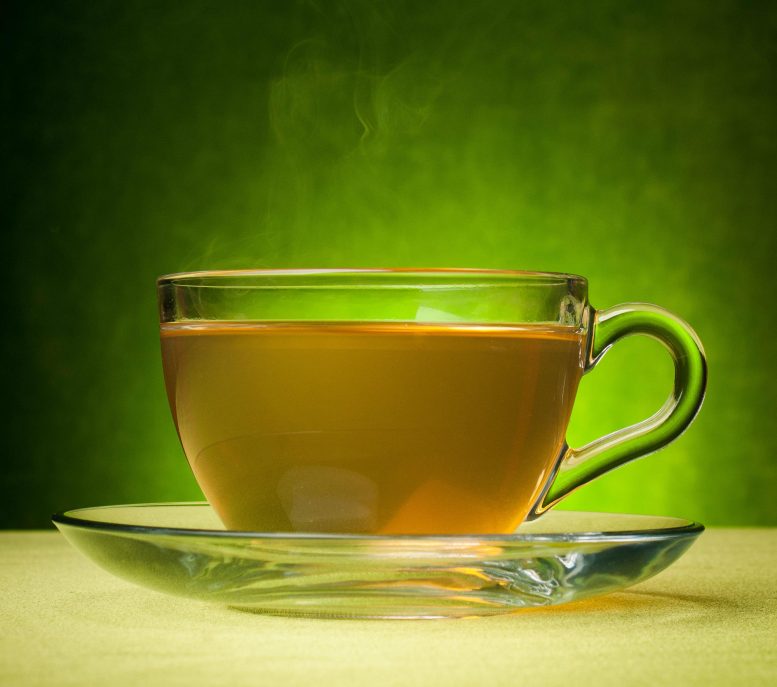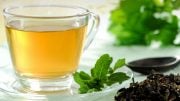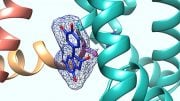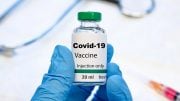
New research suggests that green tea extract can cause liver damage in a small subset of the population.
According to a recent study, although taking high-dose green tea extract for an extended period may offer some protection against cancer, cardiovascular disease, obesity, and type 2 diabetes, it may also cause liver damage in a small group of people.
Who is at risk? Research from Rutgers, published in The Journal of Dietary Supplements, provides the first solid clue: two genetic variants that predict some of the risk.
“Learning to predict who will suffer liver damage is potentially important because there’s growing evidence that high-dose green tea extract may have significant health benefits for those who can safely take it,” said Hamed Samavat, senior author of the study and an assistant professor of nutrition sciences at the Rutgers School of Health Professions.
Using data from the Minnesota Green Tea Trial, a large study of green tea’s effect on breast cancer, the research team investigated whether people with certain genetic variations were more likely than others to show signs of liver stress after a year of ingesting 843 milligrams per day of the predominant antioxidant in green tea, a catechin called epigallocatechin gallate (EGCG).
Researchers led by Laura Acosta, then a doctoral student, now a graduate, selected two genetic variations in question because each controls the synthesis of an enzyme that breaks EGCG down. They selected the Minnesota Green Tea Trial because it was a large, well-designed study of a unique population. The year-long, placebo-controlled trial included more than 1,000 postmenopausal women and collected data at 3, 6, 9 and 12 months.
An analysis by researchers showed that early signs of liver damage were somewhat more common than normal in women with one variation in the catechol-O-methyltransferase (COMT) genotype and strongly predicted by a variation in the uridine 5’-diphospho-glucuronosyltransferase 1A4 (UGT1A4) genotype.
On average, participants with the high-risk UGT1A4 genotype saw the enzyme that indicates liver stress go up nearly 80 percent after nine months of consuming the green tea supplement, while those with low-risk genotypes saw the same enzyme go up 30 percent.
“We’re still a long way from being able to predict who can safely take high-dose green tea extract,” said Samavat, who noted the risk of liver toxicity is only associated with high levels of green tea supplements and not with drinking green tea or even taking lower doses of green tea extract. “Variations in this one genotype don’t completely explain the variations in liver enzyme changes among study participants. The full explanation probably includes a number of different genetic variations and probably a number of non-genetic factors.”
“Still,” Samavat continued, “we do think we have identified an important piece of the puzzle and taken a step toward predicting who can safely enjoy any health benefits that high-dose green tea extract provides.”
Reference: “Hepatotoxicity with High-Dose Green Tea Extract: Effect of Catechol-O-Methyltransferase and Uridine 5’-Diphospho-glucuronosyltransferase 1A4 Genotypes” by Laura Acosta, Laura Byham-Gray, Mindy Kurzer and Hamed Samavat, 30 September 2022, Journal of Dietary Supplements.
DOI: 10.1080/19390211.2022.2128501









Very misleading for a supposed scientificly based article. Apparently it’s the extract form of a specific green tea ingredient and not the green tea itself. Almost click bait…
My bad, it’s in the title.
If they are talking about green tea extract, why show a cup of tea. Extracts are in capsules and tablets.
Just below this article is an article about the benefits of drinking tea.
If you like green tea, or any other type, drink it, if you don’t, don’t drink it. If it affects your health adversely, don’t drink it. It’s not that difficult to figure out. Beware of “experts.”
Green tea isn’t for everybody it cuts off my circulation somehow causing me to get quick dizzy spells either wind or blood but I don’t mess with it no more.
Fake news, that how they do business. Provid false information so the kind of tea thwy sell will sell.
I am a daily matcha tea drinker, I wonder if this is included in their studies? Since I have started drinking it my BP has lowered and so has my sugar numbers. I don’t see myself stopping anytime soon.
There arr people, such as my daughter and myself, who get aching arthritic joints from drinking bkack or green tea. There is something in there that should be investigated as an irritant to arthritic joints.